What is Diabetes Stigma?
A resource for healthcare heroes
Diabetes stigma refers to negative social judgments, stereotypes, and prejudices about diabetes, or about a person due to their diabetes.1 Diabetes stigma becomes discrimination when it is used in unfair or prejudicial treatment towards a person with diabetes.1
Why does diabetes stigma exist?
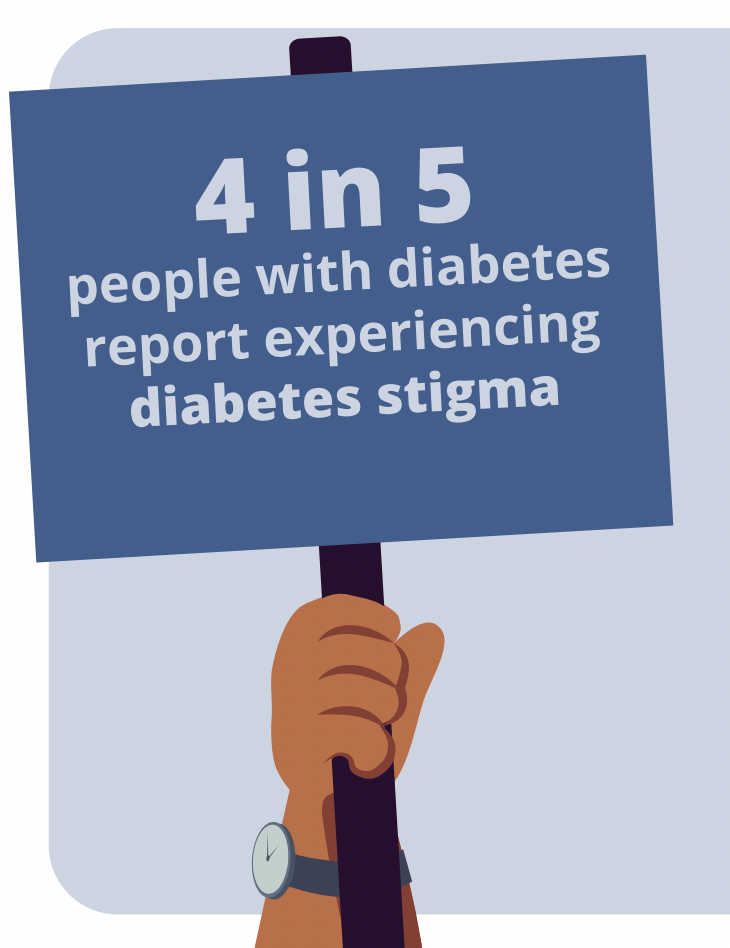
Most health-related stigma, including diabetes stigma, is caused by shame, blame, fear, and disgust that arises from negative stereotypes and misinformation.1-3
These stereotypes and misinformation are often amplified by media messaging and public discourse, health organizations and healthcare professionals, cultural and social norms, policy, and law.
What does diabetes stigma look like?
Internalized stigma
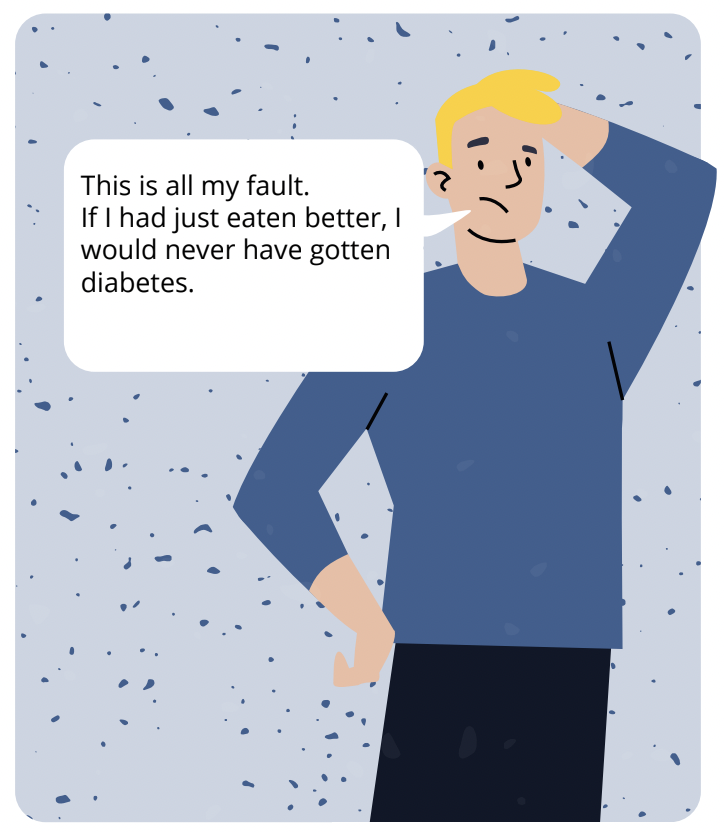
Interactions with others
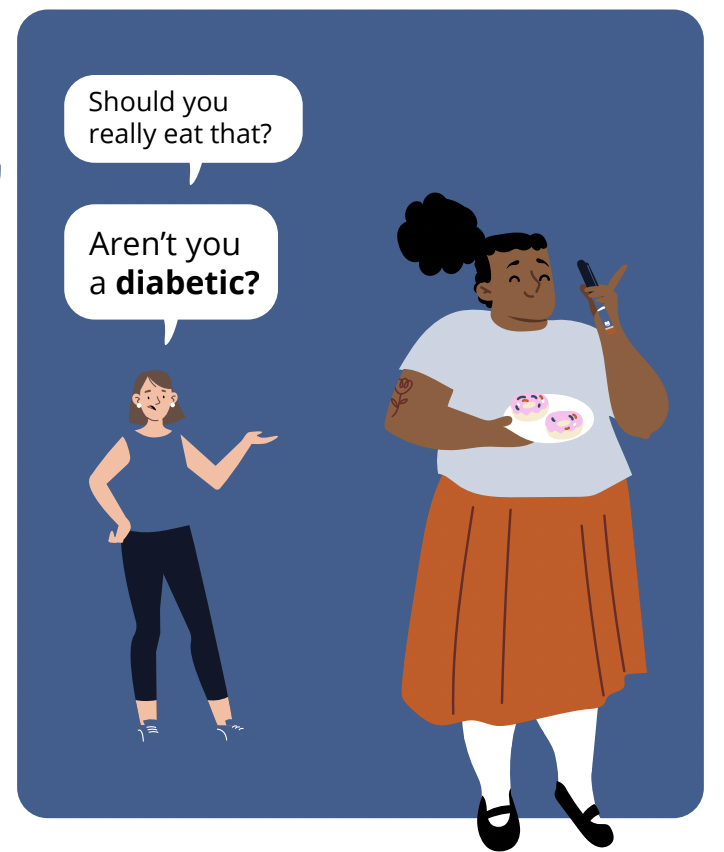
In healthcare
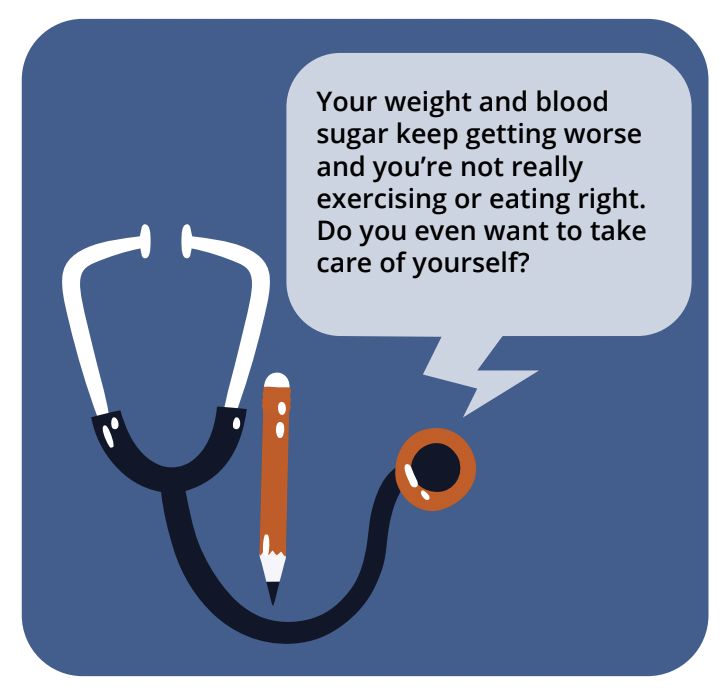
In the media and pop culture

In education and employment
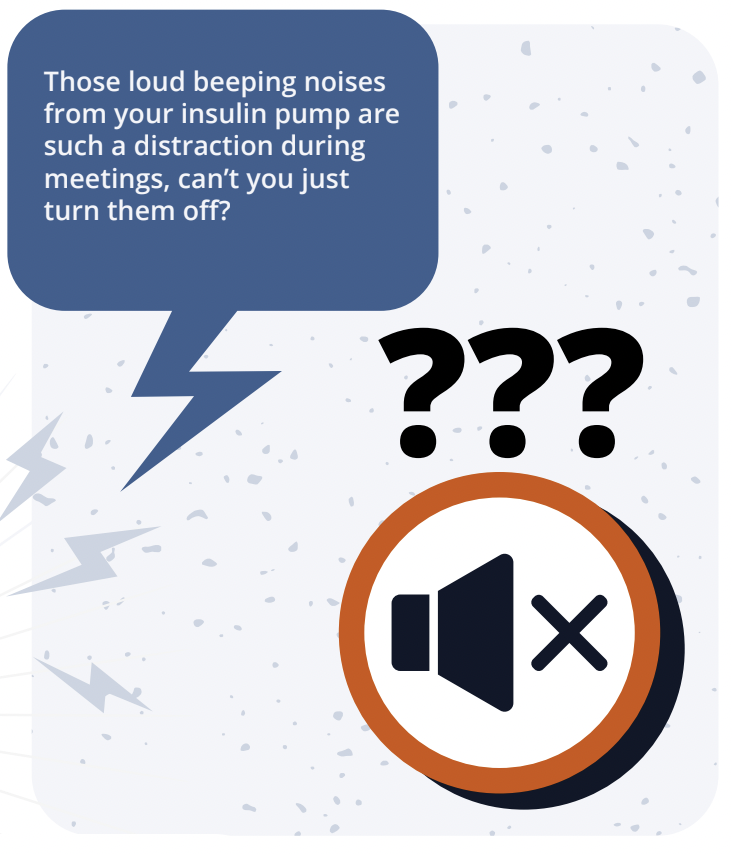
In our language
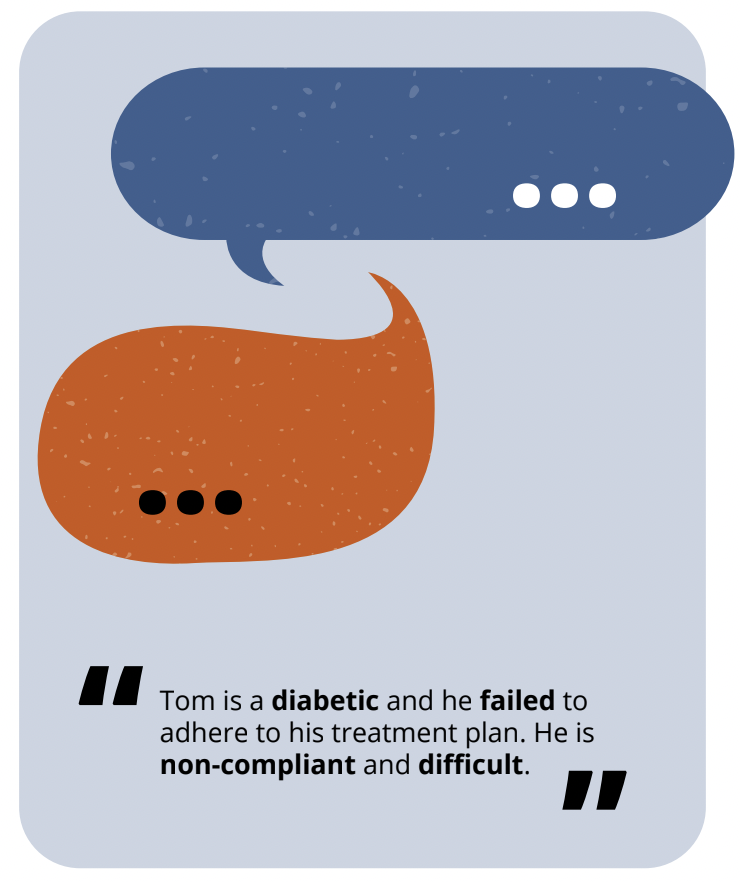
In the diabetes community
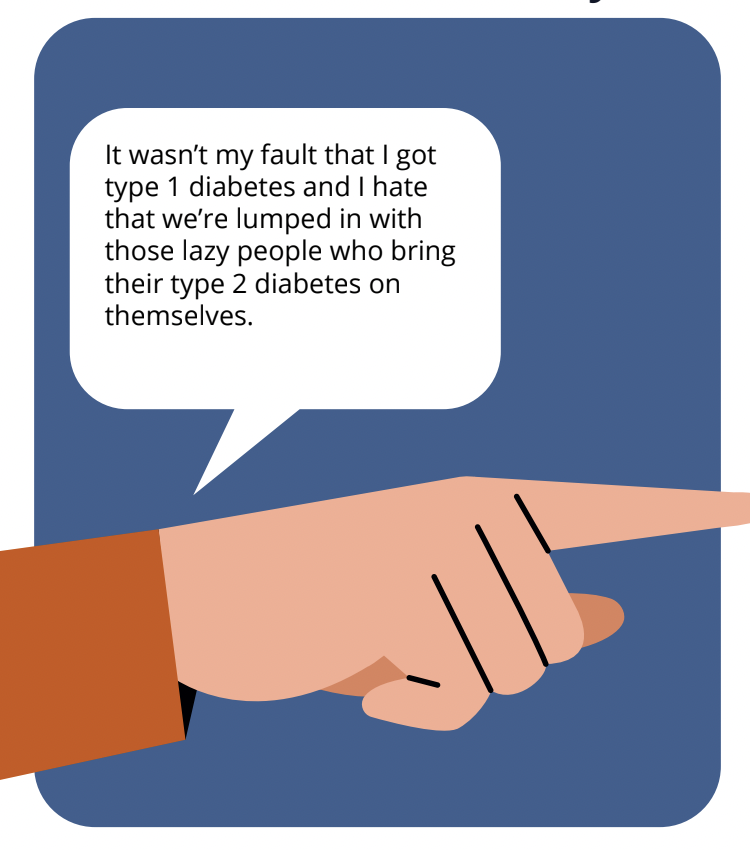
What is the impact of diabetes stigma?
Numerous quantitative and qualitative studies have shown that diabetes stigma negatively impacts people with diabetes.
Psychological
well-being
- Increased depressive and anxiety symptoms,4
- Increased diabetes distress,4
- Decreased quality of life,5
- Decreased self-esteem,4 self-efficacy,6 and resilience.7
Social
well-being
- Social withdrawal or isolation,8
- Worse interpersonal relationships with family, friends, and healthcare professionals,6,8,9
- Concealing diabetes from others.10
Physical well-being
and self-care
- Higher HbA1c,11
- Higher BMI,12
- More frequent severe hypoglycemia,11 diabetes-related ketoacidosis (DKA),11 retinopathy,11 hospitalizations,13
- Avoiding diabetes self-care behaviors including monitoring glucose levels, delivering insulin, and taking diabetes medications,10
- Avoiding healthcare appointments and screenings (for diabetes or diabetes-related complications).14
Ignorance perpetuates diabetes stigma.
The first step to address diabetes stigma is to understand what it is and how it affects people. Visit the dStigmatize Resource Library to learn more.
This resource was created for dStigmatize, a diaTribe Foundation program, with support from Lilly Diabetes, AstraZeneca, and the Boehringer Ingelheim-Lilly Alliance.



Citations
- Speight, J., Holmes-Truscott, E., Garza, M., Scibilia, R., Wagner, S., Kato, A., … Skinner, T.C. (2024). Bringing an end to diabetes stigma and discrimination: an international consensus statement on evidence and recommendations. The Lancet Diabetes & endocrinology, 12(1), 61-82.
- Stangl AL, Earnshaw VA, Logie CH, et al. The Health Stigma and Discrimination Framework: a global, crosscutting framework to inform research, intervention development, and policy on health-related stigmas. BMC Med 2019; 17(1): 31.
- Schabert J, Browne JL, Mosely K, Speight J. Social stigma in diabetes: a framework to understand a growing problem for an increasing epidemic. Patient 2013; 6(1): 1-6.
- Browne, J. L., Ventura, A. D., Mosely, K., & Speight, J. (2016). Measuring the Stigma Surrounding Type 2 Diabetes: Development and Validation of the Type 2 Diabetes Stigma Assessment Scale (DSAS-2). Diabetes care, 39(12), 2141–2148.
- Gredig, D., & Bartelsen-Raemy, A. (2017). Diabetes-related stigma affects the quality of life of people living with diabetes mellitus in Switzerland: implications for healthcare providers. Health & social care in the community, 25(5), 1620–1633.
- Pedrero, V., Manzi, J., & Alonso, L. M. (2021). A Cross-Sectional Analysis of the Stigma Surrounding Type 2 Diabetes in Colombia. International journal of environmental research and public health, 18(23), 12657.
- Zhang, Y. B., Yang, Z., Zhang, H. J., Xu, C. Q., & Liu, T. (2023). The role of resilience in diabetes stigma among young and middle-aged patients with type 2 diabetes. Nursing open, 10(3), 1776–1784.
- Liu, N. F., Brown, A. S., Folias, A. E., Younge, M. F., Guzman, S. J., Close, K. L., & Wood, R. (2017). Stigma in People With Type 1 or Type 2 Diabetes. Clinical diabetes : a publication of the American Diabetes Association, 35(1), 27–34.
- Davidsen, E., Maindal, H. T., Rod, M. H., Olesen, K., Byrne, M., Damm, P., & Nielsen, K. K. (2022). The stigma associated with gestational diabetes mellitus: A scoping review. EClinicalMedicine, 52, 101614.
- Browne, J. L., Ventura, A., Mosely, K., & Speight, J. (2014). ‘I’m not a druggie, I’m just a diabetic’: a qualitative study of stigma from the perspective of adults with type 1 diabetes. BMJ open, 4(7), e005625.
- Eitel, K. B., Roberts, A. J., D’Agostino, R., Barrett, C. E., Bell, R. A., Bellatorre, A., Cristello, A., Dabelea, D., Dolan, L. M., Jensen, E. T., Liese, A. D., Mayer-Davis, E. J., Reynolds, K., Marcovina, S. M., & Pihoker, C. (2023). Diabetes Stigma and Clinical Outcomes in Adolescents and Young Adults: The SEARCH for Diabetes in Youth Study. Diabetes care, 46(4), 811–818.
- Polonsky, W. H., Fisher, L., Hessler, D., Desai, U., King, S. B., & Perez-Nieves, M. (2022). Toward a more comprehensive understanding of the emotional side of type 2 diabetes: A re-envisioning of the assessment of diabetes distress. Journal of diabetes and its complications, 36(1), 108103.
- Lee, S. M., Lim, L. C., & Koh, D. (2015). Stigma among workers attending a hospital specialist diabetes clinic. Occupational medicine (Oxford, England), 65(1), 67–71.
- Puhl, R. M., Himmelstein, M. S., Hateley-Browne, J. L., & Speight, J. (2020). Weight stigma and diabetes stigma in U.S. adults with type 2 diabetes: Associations with diabetes self-care behaviors and perceptions of health care. Diabetes research and clinical practice, 168, 108387.